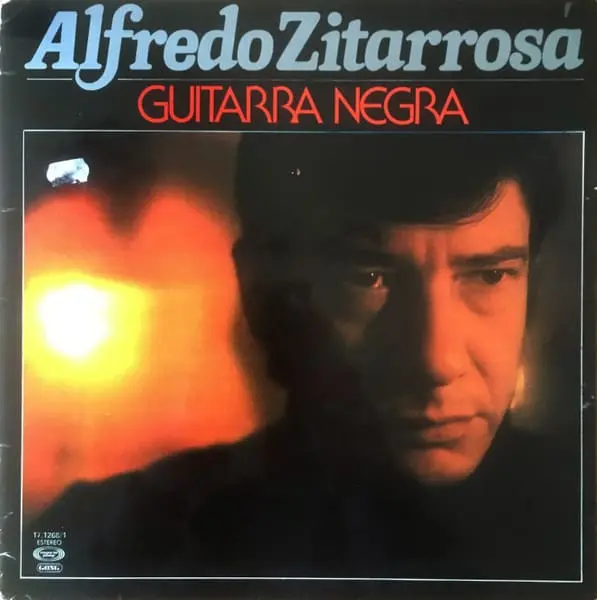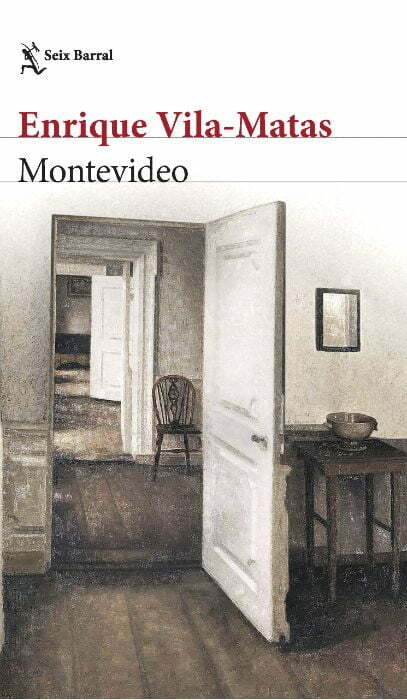La historia real detrás de Stefanie, canción de Alfredo Zitarrosa.
La vida de mi querido cantautor uruguayo, Alfredo Zitarrosa, llevaría tiempo contarla en detalle: pocas trayectorias están tan marcadas por las vicisitudes políticas, el exilio y una sensibilidad artística tan profunda. En otro momento me adentraré más en ese recorrido. Ahora quiero centrarme en su canción “Stefanie”, incluida en el disco Guitarra Negra, publicado en 1977 en España. Una pieza singular dentro de su obra, nacida en un momento especialmente complejo de su vida y cargada de una intimidad que rara vez mostraba con tanta desnudez.
¿Por qué en España?, pensaréis. Sencillamente, su militancia en la izquierda tenía como consecuencia el veto en su país natal y también en Argentina y Chile, por donde también estuvo moviéndose. Estos países atravesaban tiempos de duras dictaduras y, en Argentina y Chile, concretamente, la represión fue feroz.
El origen de la canción tiene también su “miga”. Sin apenas trabajo por la situación represiva, Carlos Bouzas su representante, le consigue unas actuaciones en Brasil, a las que asiste acompañado de sus guitarristas. Al regresar de Brasil, Carlos, quien también enfrentaba dificultades similares a las de Zitarrosa, solicita su comisión.
Bouzas detalla cómo logró las presentaciones en Brasil, así como los eventos que ocurrieron tras el regreso de Alfredo y su diálogo con él:
Se presentó la oportunidad de un contrato para Alfredo y tres guitarristas para actuar en San Pablo. Alfredo insistió en que peleara un pasaje más, para mí, como su representante, y de esa forma salir de Argentina, regresar y tener nuevamente la visa de turista. No fue posible. Sólo 4 pasajes, estadía en buen hotel, y sobre todo, pago por adelantado al llegar a Brasil. Era muy buen dinero, por 4 actuaciones. Y la comisión me permitiría mejorar en algo mi triste economía.
El ‘Flaco’ regresó contento. Ese lunes conversamos largo y tendido en su departamento. Resumía la situación brasilera, en contraste con la uruguaya y argentina, como mucho más abierta y menos represiva. Se pueden hacer cosas, artísticas y algunas políticas.
Ya terminando la conversación, me interesé por el dinero, por mi comisión.
«Ah, Carlitos, no traje un peso, y tampoco un dólar».
«Pero, ‘Flaco’, ¿no te pagaron por adelantado?», le pregunté.
«Sí, sí», contestó medio titubeante. Dejó el mate, se sirvió un whisky y arrancó:
«El sábado, antes de la segunda actuación de aquella noche, me sentí muy pero muy bajoneado. En el bar del hotel pedí una copa, luego otra, y súbitamente surge frente a mí una mujer de excepcional belleza. La convido a un trago, conversamos, subimos a mi habitación. Y me enamoré perdidamente. Le propuse viajar a Buenos Aires. Convivir. Casarnos. Me golpeaban la puerta de la habitación para hacer mi segunda entrada. Ya nada me importaba. Había descubierto nuevamente el amor. Y me demolió, Carlitos, me demolió. Me dijo que no iría a ningún lado, que lo hacía por dinero.
Me incorporé. Apreté los billetes, los tuyos y los míos, se los arrojé por la cabeza, hasta con odio. Ella los juntó, uno a uno, saludó con su maravillosa testa, y en silencio salió de la habitación. Pero Carlitos, tené paciencia, ya reaparecerán tus dólares. Tengo en la cabeza una canción que va a andar muy bien, estoy seguro, y se llamará ‘Stefanie’».
De esta manera surgió la canción. Una pieza excepcional, atravesada por la amargura y la soledad, en la que Zitarrosa se expone con una sinceridad poco habitual incluso para él. “Stefanie” es una historia de desamor desgarradora, pero también un testimonio de la hondura emocional y la honestidad artística que definieron toda su obra. Una canción que, más que escucharse, se siente.
Stéfanie, no hay dolor más atroz que ser feliz.
Decías anoche: “óuvi me, po favó, bésame aquí”.
Stéfanie, sé que tu corazón “fala yi mi”.
Y eso es dolor, Stéfanie…
Stéfanie, yo ayer estaba solo y hoy también
pero en mi cama ha quedado el perfume de tu piel.
Te veo salir, correr por el pasillo del hotel:
la vida es cruel, Stéfanie…
Stéfanie, hay una sombra oscura tras de ti;
de tu ternura, recuerdo la mirada azul- turquí,
los pies calientes, tus palabras de amor en portugués,
pero no a ti, Stéfanie…
Sé más valiente; hazme saber si va a sobrevivir
entre la gente el color de tu pelo, Stéfanie…
Debes vivir la soledad que sales a vender;
sé más mujer, Stéfanie…
Stéfanie, yo tampoco te quiero, mas tu amor,
por el dinero, ha olvidado al obrero y al señor.
Esta canción que pregunta por ti, que no ha dormido,
es puro olvido, Stéfanie…!
Precisiones:
“Ouvi me, po favo” (Oyeme, por favor)
“fala de mim” (Habla de Mí)
Transcripción del extracto de conversación entre Alfredo Zitarrosa y Carlos Bouzas ↗️
Créditos en la canción:
Letra, composición, guitarra y voz: Alfredo Zitarrosa
Guitarras: D. Velasquez, José L. Peñamaría, Julio Amaya, Y. Palacios
Orquesta dirigida por: Horacio Icasto
“Stefanie”, canción contenida en el Lp “Guitarra Negra” Movieplay, 1977
Hasta aquí esta mirada a Stefanie, de Alfredo Zitarrosa.
Una canción que transforma el desencanto en lucidez, y la herida en forma.
Si te interesa la canción de autor que indaga en lo íntimo y lo social,
puedes explorar otras dos piezas que dialogan con la sensibilidad de Zitarrosa —distintas en tono, pero afines en profundidad:
▶️ Lá Em Baixo, de Sérgio Godinho: soledad, lucha y ternura urbana
▶️ Soneto de la Guirnalda de Rosas, de Lorca/Amancio Prada: deseo, muerte y belleza lírica
*Tres canciones que convierten la experiencia en forma, el dolor en palabra
y la lucidez en una forma de resistencia emocional.*



